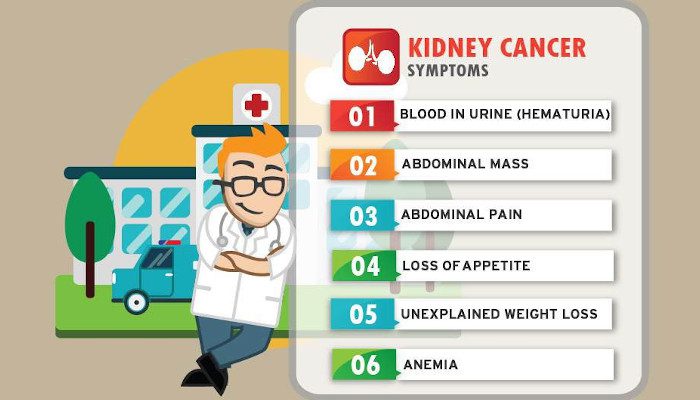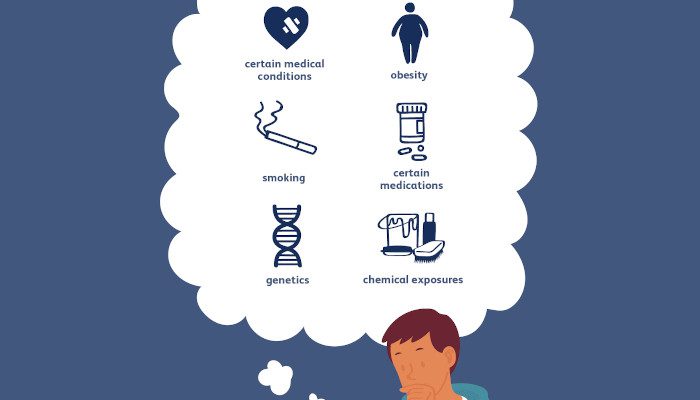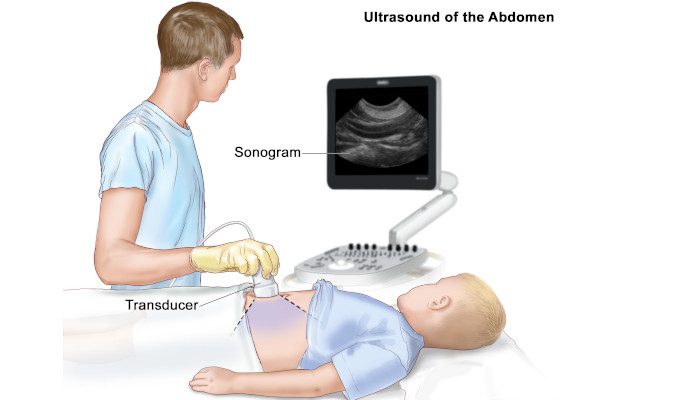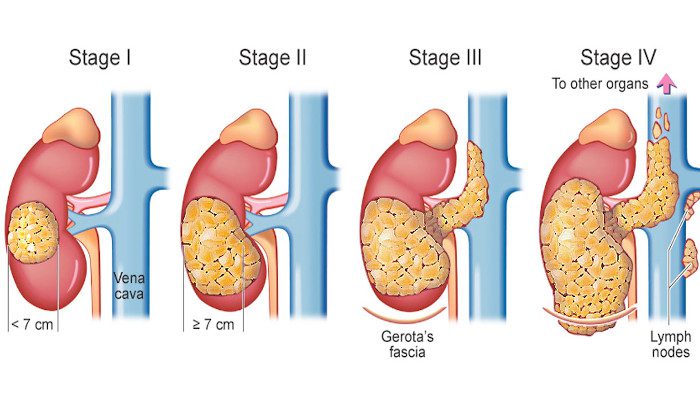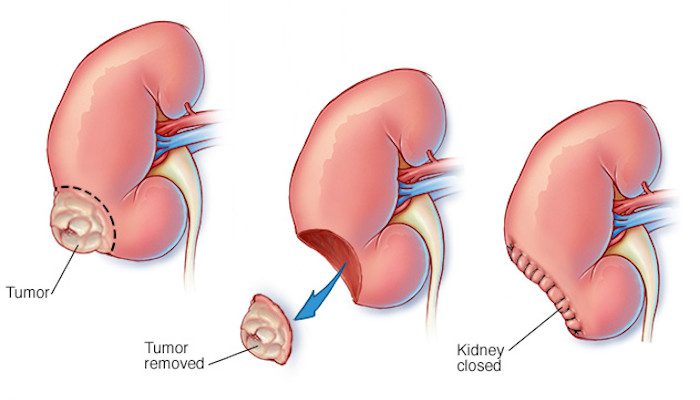Kidney cancer is one of the most common cancers globally and has seen remarkable advancements in its treatment over the past few decades. From traditional surgical methods to cutting-edge immunotherapies and targeted treatments, the landscape of kidney cancer therapy has evolved significantly, bringing new hope to patients and healthcare providers alike. In this comprehensive guide, let’s delve into the latest advances in Kidney cancer treatment, highlighting the impact of these innovations on patient outcomes and the future of cancer care.
Let’s know about Kidney Cancer:
As we are all aware, kidney cancer develops in the kidneys, which are two bean-shaped organs located behind the abdominal organs. The most common type of this cancer is Renal Cell Carcinoma (RCC), accounting for about 90% of cases. Other types include transitional cell carcinoma, Wilms’ tumour, that is primarily affecting children and renal sarcoma. Early-stage kidney cancer often presents with few symptoms, making early detection challenging. As the disease progresses, symptoms may include blood in the urine, back pain, and weight loss.
Evolution of Kidney Cancer Treatment:
- Surgical Innovations:
For decades, surgery has been the cornerstone of kidney cancer treatment, especially for localized tumours. The primary surgical options include:
- a) Radical Nephrectomy: Removal of the entire kidney, often recommended for larger or more aggressive tumours.
- b) Partial Nephrectomy: This procedure removes the tumour and a small margin of healthy tissue, preserving the remainder of the kidney. It is increasingly preferred for smaller tumours to maintain kidney function.
Patient outcomes have improved dramatically due to recent advancements in surgical procedures. Laparoscopic and robotic-assisted surgeries have become more common, offering several benefits over traditional open surgery, such as smaller incisions, reduced blood loss, shorter hospital stays, and quicker recovery times.
- Targeted Therapies:
Targeted therapies have revolutionized the treatment of kidney cancer by focusing on specific molecules involved in tumour growth and progression. These therapies interfere with cancer cell proliferation and survival, providing a more precise approach than traditional chemotherapy. Critical targeted therapies include:
- a) Tyrosine Kinase Inhibitors (TKIs): Drugs like sunitinib, sorafenib, and pazopanib inhibit specific enzymes (tyrosine kinases) that promote cancer cell growth. TKIs have shown efficacy in treating advanced RCC and have become a standard treatment option.
- b) mTOR Inhibitors: Temsirolimus and everolimus inhibit the mammalian target of the rapamycin (mTOR) pathway, which is crucial for cancer cell growth and proliferation. These drugs are particularly effective in patients with poor prognosis.
The introduction of these targeted therapies has significantly extended survival rates and improved the quality of life for many kidney cancer patients. However, resistance to these drugs can develop, necessitating ongoing research and the development of new agents.
Read More: Understanding Targeted Therapies Revolutionising Lung Cancer Treatment
- Immunotherapy:
One of the most intriguing developments in cancer treatment is immunotherapy, which uses the body’s immune system to combat cancer cells. In recent years, several immunotherapeutic approaches have shown promise in treating kidney cancer:
- a) Checkpoint Inhibitors: Drugs like nivolumab (Opdivo) and pembrolizumab (Keytruda) block proteins that inhibit the immune system’s ability to attack cancer cells. These checkpoint inhibitors have demonstrated significant efficacy in treating advanced RCC, leading to durable responses and prolonged survival.
- b) Combination Therapies: Combining checkpoint inhibitors with other treatments, such as TKIs or other immunotherapies, has shown synergistic effects, enhancing the overall anti-cancer response. For example, the combination of nivolumab and ipilimumab (Yervoy), another checkpoint inhibitor, has become a standard treatment for certain patients with advanced RCC.
The success of immunotherapy in kidney cancer has sparked a wave of research aimed at identifying new immune targets and developing novel immunotherapeutic agents with the potential to improve patient outcomes further.
- Personalized Medicine:
Personalized medicine, or precision oncology, tailors treatment to the individual characteristics of each patient and their tumour. Advances in genomics and molecular profiling have enabled the identification of specific genetic mutations and molecular alterations in kidney cancer, guiding treatment decisions and leading to more effective and less toxic therapies.
For example, next-generation sequencing (NGS) can identify mutations in genes such as VHL, PBRM1, and BAP1, which are involved in the pathogenesis of RCC. Understanding these genetic alterations can help predict responses to targeted therapies and immunotherapies, allowing for more personalized treatment plans.
Read More: How Does Immunotherapy Help In The Fight Against Cancer?
- Minimally Invasive and Ablative Techniques:
In addition to surgical resection, minimally invasive and ablative techniques have emerged as viable options for treating small kidney tumours, particularly in patients who are not candidates for surgery. These techniques include:
- a) Cryoablation: Involves inserting a probe under the skin to freeze the tumour.
- b) Radiofrequency Ablation (RFA): Using high-energy radio waves to heat and destroy the tumour.
- c) High-Intensity Focused Ultrasound (HIFU): Using focused ultrasound waves to heat and ablate the tumour tissue.
These approaches offer several benefits, including preservation of kidney function, shorter recovery times, and possibly repeating the procedure if necessary. However, their long-term efficacy compared to traditional surgery is still being studied.
Challenges and Future Directions:
While significant progress has been made in treating kidney cancer, several challenges remain. Resistance to targeted therapies and immunotherapies is a considerable hurdle, highlighting the need for ongoing research to identify new therapeutic targets and develop more effective treatments.
Additionally, kidney cancer’s heterogeneity poses a challenge for personalized medicine. Tumours can vary significantly between patients and even within the same patient, necessitating a more nuanced approach to treatment. Advances in liquid biopsy technologies, which analyze cancer-related genetic material in blood samples, offer the potential for real-time monitoring of tumour evolution and treatment response, facilitating more dynamic and adaptive treatment strategies.
Integrating Artificial Intelligence (AI) and machine learning into cancer research holds promise for accelerating the discovery of new therapies and optimizing treatment plans. AI can analyze vast amounts of data from clinical trials, genomic studies, and patient records to identify patterns and predict treatment outcomes, potentially leading to more effective and personalized cancer care.
In overview, the treatment landscape for kidney cancer has transformed dramatically over the past few decades, driven by advances in surgical techniques, targeted therapies, immunotherapy, and personalized medicine. These innovations have improved many patients’ survival rates and quality of life, offering new hope in the fight against this challenging disease.
As research continues to uncover the underlying mechanisms of kidney cancer and develop more effective treatments, the future looks promising. Integrating new technologies and approaches, such as AI and liquid biopsies, will further enhance our ability to tailor treatments to individual patients and monitor their progress in real-time.
While challenges remain, the advances in treating kidney cancer represent a significant leap forward, bringing us closer to the ultimate goal of curing this disease. The continued collaboration between researchers, clinicians, and patients will be crucial in driving further progress and ensuring that the benefits of these innovations reach all those affected by kidney cancer. If you also want to treat your kidney or any other type of cancer, you should consult with Oncoplus, the best oncology hospital in Delhi. We are aware of the pains tolerated by cancer patients, so our compassionate staff and committed team work hard every day to ensure that our patients will have a positive experience. At Oncoplus, we sincerely think that a quick recovery can be significantly assisted by the environment.
Cancer is a type of cancer that begins in the kidney cells. The kidneys are the two bean-shaped organs located behind your abdominal organ on either side of the spine. It plays a crucial role in filtering blood and removing waste products from the body. The common type of kidney cancer is the renal cell carcinoma. Other types of kidney cancer include transitional cell carcinoma, Wilms tumor, and renal sarcoma. The major signs of kidney cancer are blood in the urine, abdominal or back pain, fatigue, unexplained weight loss, tiredness, high blood pressure, high calcium, and a lump in the kidney area. Regular checkups with a healthcare provider help you detect kidney cancer early, which improves your chances of a successful treatment. Oncoplus Hospital, the cancer hospital in Delhi, wants to inform you about kidney cancer. In this blog, you will learn the facts about kidney cancer.
Symptoms of Kidney Cancer:
The symptoms of kidney cancer can vary from person to person, and some people may not experience any symptoms at all in the early stages of the disease. The most common symptoms of kidney cancer are blood in the urine, pain in the side or back, weight loss, fatigue, fever, swelling in the legs or ankles, loss of appetite, and tiredness.
Risk Factors for Kidney Cancer:
- The risk factor for kidney cancer is smoking. Cigarette smoke contains numerous chemicals that can damage DNA, and smokers are more likely to develop kidney cancer than non-smokers.
- Other risk factors include obesity, high blood pressure, and exposure to certain chemicals.
- Chronic kidney disease is also a risk factor for kidney cancer, as are certain inherited conditions such as Von Hippel-Lindau disease, hereditary papillary renal cell carcinoma, etc.
- If close family members have a kidney disease, then the risk of having kidney cancer increases.
Prevention Tips
While not all risk factors for kidney cancer are preventable, there are steps that individuals can take to reduce their risk. These include quitting smoking, maintaining a healthy weight, managing high blood pressure, and avoiding exposure to harmful chemicals. It is also important to get regular check-ups and discuss your kidney health with your healthcare provider. By taking proactive measures, individuals can reduce their risk of developing kidney cancer and other kidney-related illnesses.
Treatment Options for Kidney Cancer:
The treatment options for kidney cancer depend on several factors, such as the stage and location of the tumor, the patient’s overall health, and the presence of other medical conditions. The treatment options available for kidney cancer include surgery, radiation therapy, targeted therapy, or immunotherapy.
- Surgery:
Surgery is basically the primary treatment for kidney cancer. The most common surgical procedure is a radical nephrectomy, which involves removing the entire affected kidney, surrounding tissue, and nearby lymph nodes. In some cases, a partial nephrectomy surgeon removes only the tumor and a small amount of surrounding tissue while preserving the remaining healthy kidney tissue.
- Radiation Therapy
Radiation therapy uses radiation to kill cancer cells. It is not a common treatment for kidney cancer but may be used in some cases, such as when surgery is not an option or when the cancer has spread to other parts of the body.
Read More Blog:- Treatment Of Cancer With Radiation Therapy
- Targeted Therapy:
In targeted therapy treatment, doctors use drugs to target specific molecules that are responsible for the growth and spread of cancer cells. These drugs can block the cancer cells that are used to divide and grow, or they can trigger the immune system to attack cancer cells.
Read More Blog:- Targeted Therapy For Treating Advanced Gastrointestinal Stromal Tumors
- Immunotherapy
Immunotherapy is a type of treatment in which doctors use medications to boost the immune system’s ability to recognize and attack cancer cells. The most common type of immunotherapy for kidney cancer is checkpoint inhibitors, which block proteins that prevent the immune system from attacking cancer cells.
Read More Blog:- How Does Immunotherapy Help In The Fight Against Cancer?
At Oncoplus Hospital, you can consult the best cancer doctors in Delhi. In conclusion, kidney cancer can be treated with a combination of surgical, radiation, and systemic therapies. The choice of treatment depends on the individual patient’s situation and a multidisciplinary team of doctors and specialists.
The prevalence of Kidney Cancer in India is about four times higher than in the western world, a difference which may be partly due to the lack of medical facilities. In addition, the survival rate and prognosis are largely influenced by age, so the results for India are alarming. This article will discuss the most common forms of the disease, and how treatment options vary across the country. The findings will be helpful for those affected by kidney cancer
The incidence of kidney cancer in India is increasing, with the prevalence of the disease rising every year. The disease affects men and women of any age, ethnicity, or geography. Although most cases are incidental, patients should be screened as soon as they are diagnosed. Moreover, advanced technology is making it easier than ever to detect the disease in its early stages. The cost of kidney cancer treatment in India is extremely low, making it an ideal option for many patients with this type of disease.
Treatment options for patients with this condition vary depending on the stage of the disease. In Stage IV/Metastatic, tumours can have any size, and positive nodes are indicative of the presence of cancer cells. In this stage, there is no cure for the disease, but it can be treated by palliation and life-prolonging therapies. PET scans can help determine whether the cancer has spread to other parts of the body, and they can show the progression of the disease. Clear cell adenocarcinoma is the most common type of kidney cancer, but other rare types include Mercel cell, papillary cell, and papillary cell. Other rarer types include Lymphoma and Sarcoma.
Patients with stage I kidney cancer have a high five-year survival rate if the tumours are under seven centimetres in diameter. In stage II patients, the survival rate is lower, but the patient is still alive. A stage III patient with a larger tumor has a higher five-year survival rate. The condition is also more severe, and the cancer can spread to other organs in the body. The five-year survival rate is significantly lower.
There are some benefits of having kidney cancer in India. Most of the treatments for the disease include surgery, chemotherapy, and immunotherapy. It is important to note that the treatment for stage III can be risky, so patients should consider their budget before seeking treatment. In the end, the treatment of stage IV kidney cancer depends on the stage of the disease. The tumor size can be anywhere from one to seven centimeters. It is important to seek medical advice as soon as possible after the cancer is diagnosed.
CT scan is a special imaging technique that allows doctors to construct a three-dimensional view of the internal body. The scan is necessary to find out whether there are any suspicious masses. In the case of cancer, the doctor will use various imaging techniques to determine the stage. The patient should have a regular checkup to see if they have any pain or other symptoms. The doctor will also recommend surgery. But it is important to know that it is possible to survive the disease, even in the advanced stages.
In case the symptoms of cancer have not been properly treated, the doctor may refer a patient to a specialist. The doctor will use a needle biopsy to determine the stage of the disease. The stage of the cancer is an important factor in selecting the right treatment options. During a post-op visit, the doctor will review the patient’s medical records and discuss the available treatments. A nephrologist will then be able to determine the exact cause of the disease.
The survival rate for kidney cancer in India is around two years. It depends on a number of factors, but in general, patients living in India can expect a three-year survival rate. The American Cancer Society reports that the survival rate for kidney cancer in India is three times higher than in the US. Fortunately, the majority of cases of the disease are detected in the early stages. The good news is that treatment for kidney cancer in India is available for people affected by the disease.
Kidney Cancer in India
The incidence of kidney cancer in India is very high, with about 2/100,000 males and 1/100,000 females diagnosed with the disease. The most common stage of this disease is localized, where the treatments aim to cure the patient as soon as possible. In regional stages, the only option is surgical removal of the affected organ. This type of treatment is expensive but can offer good outcomes. It also requires aggressive intervention and is associated with a high five-year survival rate.
There are over 40,000 patients diagnosed with renal cancer in India, according to a Globocan 2020 report. These patients need aggressive treatments that have been proven to work. In India, the treatment of stage one cancer is relatively simple compared to the treatments for stage two. On the other hand, treatment for stage two cancer requires a kidney tumor that is at least seven centimeters in size. If the tumor has spread to nearby organs, it may even be metastasized.
In India, kidney cancer has increased in the last few decades. The incidence is one of the top 10 cancers for both men and women. The lifetime risk is about 1.6%. The condition is more common in older individuals and is more likely to affect older people. Fortunately, in India, it is treatable when detected early. In the US, more than 130,000 people die every year of kidney cancer. In fact, many of these patients have stage 1 disease.
Kidney Cancer Treatment
During the initial stage, doctors try to remove as much of the cancer as possible. The surgeons often perform surgery to remove as much of the tumor as possible, and then use radiation to shrink the cancer cells. The treatment can be costly, and it’s best to consult a specialist if the disease is in the later stages. The kidney tumor may spread to the bones, so treatment may need further therapy. If it spreads beyond the kidney, it may need surgery to stop its spread.
For most patients with advanced kidney cancer, surgery is the best option. However, if the tumors are too large for surgery, an ablation using a catheter is an alternative. This method is more expensive and can result in a relapse. If the cancer spreads to other organs, it’s called a relapse, and is more difficult to treat. In such cases, a physician might perform a more radical treatment that does not involve a surgery.
Most patients with advanced kidney cancer undergo surgery. The goal of this treatment is to preserve the kidney’s function and to reduce the risks of hernia. In some cases, the entire kidney may have to be removed. In some cases, the cancer may have spread beyond the kidney and the surgeon will have to resort to immunotherapy or targeted therapy. The patient’s overall health is also of the utmost importance.
Surgical treatment options for kidney cancer in India vary from country to country. In some countries, patients will be able to choose the procedure that best suits their needs. There are many options in India that are effective in treating this disease, including laparoscopic surgeries and traditional methods. While both of these procedures are invasive, they are safe and provide excellent pain relief. During surgery, the patient will experience a painful hernia.
Among the various treatments for this disease, immunotherapy is a treatment that allows the patient’s immune system to become more effective. It can prevent cancer from spreading to other organs. The drug can be administered either intramuscularly or intravenously. For those with advanced kidney cancer, targeted therapy is another option. If cancer has spread to some parts of the body, it can spread to other areas of the body.
